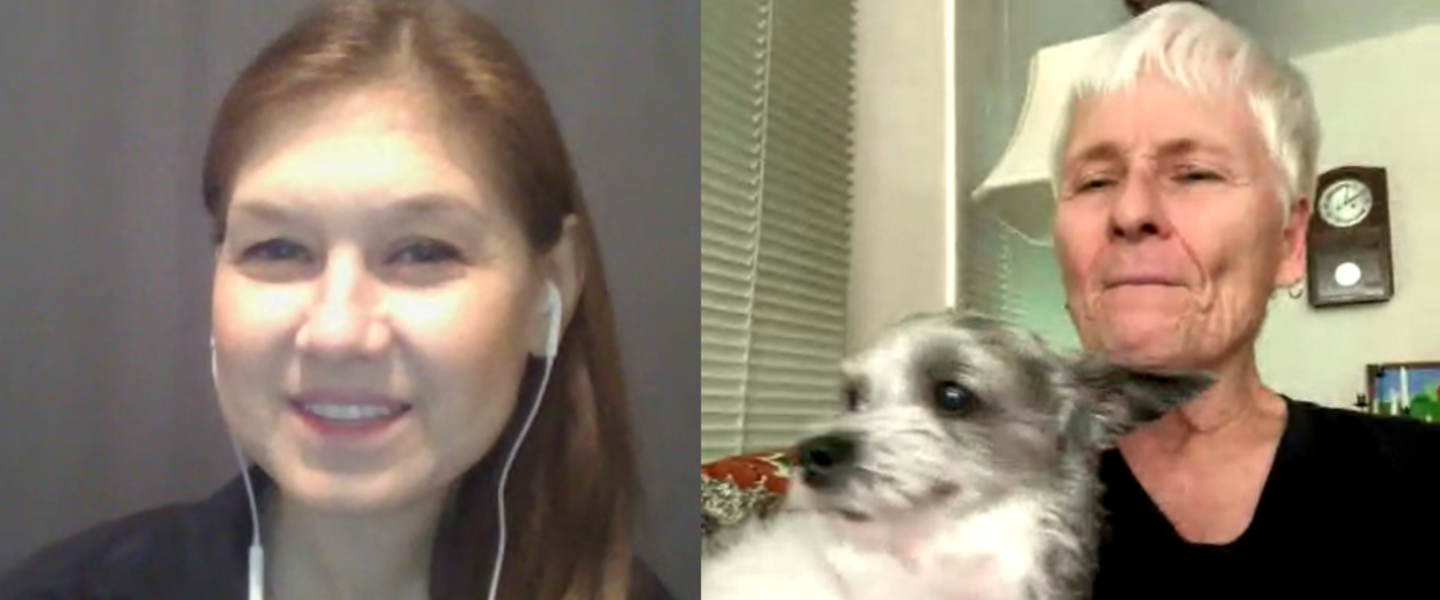Section Branding
Header Content
StoryCorps Atlanta: Troublemakers, partners, lifelong friends
Primary Content
Jennifer Frederic: Where did you go to college?
Cealy Brown: I went to William and Mary in Williamsburg, Va.
Jennifer Frederic: Tell me about your best friend. Tell me how you met.
Cealy Brown: So her name was Marianne Lester. Marianne would tell you that her first memory of me was: I was on a motorcycle wearing a black cocktail dress, and I offered her a ride. We used to spend an enormous amount of time together, and then we fell in love before that was kind of allowed and got into a great deal of trouble at school.
Jennifer Frederic: Were you the troublemaker or was Marianne? Or were you both?
Cealy Brown: We were — it's funny. God, it's so funny, remembering back. So we were — well, neither, we were both in some ways very compliant and obviously in some ways not compliant because that was a taboo. We were both still, we're dating men. It just sort of happened, we both drank an enormous amount which kind of allowed us to explore feelings. We were missing longer than any two coeds in the history of the College of William and Mary, which was 275 years at that point. We had gone down to Virginia Beach, I had rented a car, and we didn't make it back in time for curfew. And my sorority sisters reported me to the dean. So I got suspended, I got back in, she wound up leaving William and Mary. One of her younger sorority sisters reported her and she was going to get kicked out of her sorority. Anyway, she never went back, so —
Jennifer Frederic: She didn't graduate from William and Mary and you did?
Cealy Brown: From William and Mary, yeah. And although when I got kicked out and let back in, I withdrew and reapplied. So that last — I left William and Mary like eight weeks before graduation and came back for one more semester to finish up because — I mean, it was ridiculous to transfer. Marianne didn't want to be there if she wasn't going to be able to be in her sorority. I went back to my 50th college reunion and I was driving to Williamsburg and I called her and I said, "Guess where I'm going?" And she said, "Where?" And I told her, and she burst into tears and she said, "How could you do it? How can you go there?" Marianne — I had left Marianne. It was right, it was a good thing. We had an up-and-down connection throughout the next five decades. She had a life partner she'd been with for 36 years, 30-some years. She was a dynamic woman who had many, many friends and touched many lives. And the reason is that I'm doing this is so she will not be forgotten. I think memorials are important, memorials are for the living. They're the way we pay respect for the person. They're the way we remember the person. I tell stories that other people haven't heard. They tell stories I haven't heard. We learn more about the person we've just lost and they live on. And the thought of Marianne not living on —
Jennifer Frederic: It's heartbreaking.
Cealy Brown: It is heartbreaking. She was a hell of a broad, as they used to say back in the '40s.
Jennifer Frederic: She's a beautiful and brave broad.
Cealy Brown: She was.
Jennifer Frederic: That's what I hear.
Cealy Brown: Yeah. You'd have liked her.
Jennifer Frederic: Thank you so much for sharing Marianne with me. I feel like — I feel like I met her through you. Through your eyes.
Cealy Brown: Thank you. Thank you for giving me the opportunity for her to live on in perpetuity.
This story was produced locally for GPB by Chase McGee and recorded in partnership with StoryCorps Atlanta.







